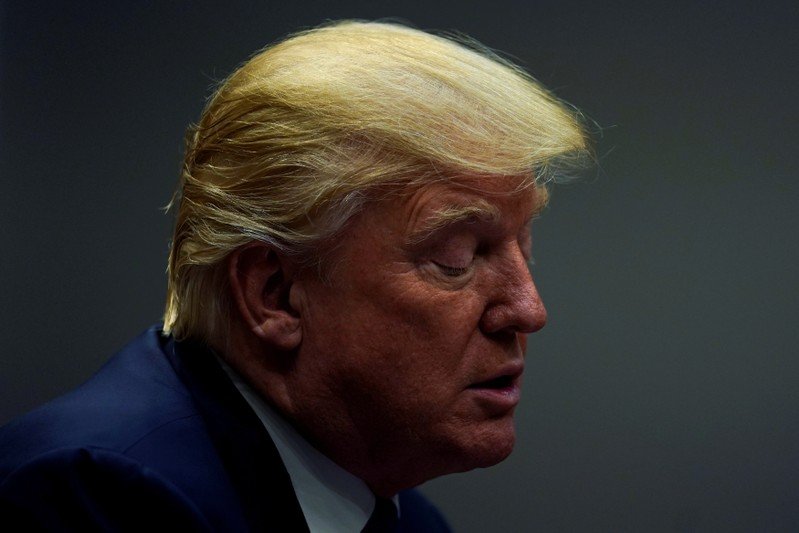Media Report

- Vox reports: "It's looking like President Trump might finally follow through on his threats to get tough with China on trade. Earlier this month, Trump administration officials told Politico that the White House is preparing to roll out hard-hitting policies designed to punish China for its "unfair" trade practices. Last Monday, Trump told Chinese President Xi Jinping during a phone conversation that the trade deficit between the US and China was "not sustainable." And Trump told Reuters last Wednesday that he's planning to unveil some kind of action against China over trade during his State of the Union address at the end of the month. If Trump does decide to take action against China, he'll finally be fulfilling one of his boldest campaign promises. On the campaign trail, he promised to avenge China's "rape" of the US economy and its "theft" of coveted manufacturing jobs from the American heartland. He pledged to punish China for devaluing its currency to give itself a special advantage in global trade. And he threatened to impose enormous 45 percent tariffs on goods from China to protect American industry from competition. But after he took office, none of that happened. Trump reversed his position on blacklisting China as a currency manipulator and failed to issue any big tariffs. Trump has argued — convincingly, some experts say — that he's avoided getting aggressive with China on trade because he wants China's help with reining in North Korea's nuclear program. China is North Korea's main source of energy and biggest trading partner; the US needs Beijing to sign on to any US-led campaign to isolate North Korea if it wants a chance at squeezing the hermit kingdom's economy."
- Bloomberg reports: "With the Trump administration warning of a possible war with North Korea, U.S. allies in Asia are sounding the alarm on another risk: a clash with China in the western Pacific. China has recently accelerated air and naval excursions in sensitive areas near Japan and Taiwan, part of a longstanding quest to expand its military presence further from its shores into the Pacific Ocean. Leaders in Tokyo and Taipei have called on Beijing to back off while strengthening their defenses. Earlier this month, Japan observed for the first time a Chinese submarine entering the contiguous zone... around disputed islets in the East China Sea. That came shortly after Taiwanese President Tsai Ing-wen warned that China's increased military patrols around the island threatened to destabilize the region. President Donald Trump's 'America First' foreign policy has raised concern in Asia about the reliability of the U.S. in helping to stave off Chinese pressure as it gains greater military and economic strength. China has a long-term goal of reuniting with Taiwan, and territorial disputes with countries ranging from Japan to Vietnam to India."
- The Washington Post comments: "The National Science Foundation and the National Science Board have just released their biennial "Science & Engineering Indicators," a voluminous document describing the state of American technology. There are facts and figures on research and development, innovation and engineers. But the report's main conclusion lies elsewhere: China has become — or is on the verge of becoming — a scientific and technical superpower. We should have expected nothing less. After all, science and technology constitute the knowledge base for economically advanced societies and military powers, and China aspires to become the world leader in both. Still, the actual numbers are breathtaking for the speed with which they've been realized. Remember that a quarter-century ago, China's economy was tiny and its high-tech sector barely existed... It is hardly surprising that China has hitched its economic wagon to advanced technologies. What is less clear and more momentous is our willingness and ability to recognize this and do something about it."
Calendar
- 2018-01-21 China's breathtaking transformation into a scientific superpower
- 2018-01-19 Trump's defense strategy sees China and Russia as biggest threats
- 2018-01-18 China's Economy Growth Look Strong. Maybe Too Strong.
- 2018-01-17 Ex-C.I.A. Officer Suspected of Compromising Chinese Informants Is Arrested
- 2018-01-16 China fake data mask economic rebound
- 2018-01-15 US Plans New Nuclear Weapons
- 2018-01-14 Global investors lick lips as China opens to asset firms
- 2018-01-12 Marriott to China: We Do Not Support Separatists
- 2018-01-11 Chinese media warns the US of 'retaliations' from 'all sides' after new Taiwan bills passed
- 2018-01-10 Inside the growing backlash against China
News
- Vox Trump's moment of truth on China has arrived
- Bloomberg China's Push Into Western Pacific Alarms U.S. Allies in Asia
- Business Insider Trust in US government, media, implodes as China's soars
- The New York Times Chinese Police Seize Publisher From Train in Front of Diplomats
- Reuters China says United States is real threat to global trade, not itself
- The Washington Post China's breathtaking transformation into a scientific superpower
- Time 'Tasteless, Vulgar and Obscene.' China Just Banned Hip-Hop Culture and Tattoos From Television
- CNBC China's top paper says US forcing Beijing to speed up military deployments in a disputed waterway
- CNN China's enduring love of steam trains
- Voice Of America Invitation to Let China Explore at Sea Risks Political Backlash in Philippines
- Quartz China is both ahead of and behind Amazon in cashier-less stores
- Bloomberg Fresh Doubts Raised on China's Bad-Loan Data
- Voice Of America Mattis in Southeast Asia, Amid Fresh US Focus on China
Commentary
- Forbes China's Middle Class Is Spurring The Australian Open Record-Breaking Attendance
- Environmental Defense Fund Healthy oceans take center stage in China
- The National Interest Do Russia and China Stand Any Chance Against the Navy's New Aircraft Carrier?
- Foreign Policy China's Bid to Upend the Global Oil Market
- The Washington Post How China forces American companies to do its political bidding
- Forbes China's Growth Rate Remains On Track, But It's Aiming For The The Wrong Target
- Financial Times China's VPN crackdown is about money as much as censorship
